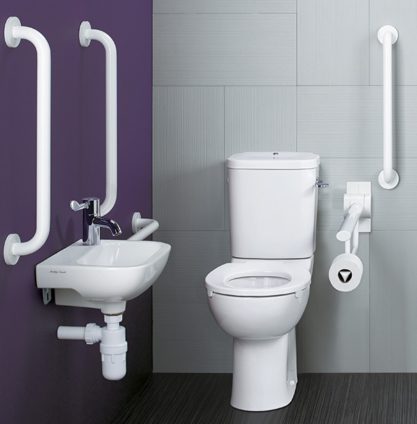Director of the Metro Public Health Department, Florence S. Kuukyi, has admonished Ghanaians to ensure a toilet facility in their households and institutions.
Her advice comes ahead of this year’s World Toilet Day, to be celebrated on Friday, November 19. The theme for this year's celebration is “Valuing Toilet”.
In a press statement, she said public health depends much on a toilet facility, but the country has not attained a great feat with respect to that.
She said Ghana is ranked the 2nd country engaging in open defecation, adding that “this ranking is not one of the best for our dear country.”
The Public Health Director also referenced findings from the World Health Organisation and UNICEF to buttress her point on the lack of public health.
“WHO/UNICEF, 2021 states that about 3.6 million people around the world are without toilet and are in dying need of a toilet, and in Ghana, about 43% of our population are still without a standard toilet.”
She described lives without a toilet facility as “dirty, dangerous and undignified”, insisting that “toilet is dignity, water is life.”
Madam Kuukyi further highlighted five reasons an individual and institution must own a toilet facility.
They are:
- Toilet keeps human waste out of water and food chain systems
- Toilet maintain human dignity
- Toilet protect us from being infected with communicable disease such as; diarrhoea, cholera, typhoid etc.
- Toilet keeps girls in school during menstruation
- Toilet create jobs (sanitation systems need people to run them).
She, therefore, used the opportunity to encourage "everyone to own a toilet."
Meanwhile, government has been urged to spearhead the creation of a country that appreciates public health by allocating enough funds to provide the many Ghanaian households with toilet facilities.
“Toilet derive improvement in gender equality, education, economics and the environment. There will be no sustainable future without toilets. There is the need for government to see toilets as a human right, and stiffer measures should be put in place to close the gap.
“...Governments must listen to the people who are being left behind without access to toilets and allocate specific funding to include them in planning and decision-making processes.”
Latest Stories
-
Brazil great Marta to retire from international duty
12 mins -
Otto Addo was forced to accept Black Stars coaching job – Mohammed Polo
17 mins -
Karim Zito qualified to be Black Stars head coach – Mohammed Polo
23 mins -
Platinum Cup makes return on April 27
29 mins -
MoE is not changing uniforms or re-painting all public schools – Kwasi Kwarteng clarifies
1 hour -
16th Africa Aquatics Swimming Championships: Nubia and Harry to represent Ghana in Angola
1 hour -
Four defendants in NDA case by OSP open defence today
1 hour -
GFA commissions first set of floodlights at Ghanaman Soccer Centre of Excellence
1 hour -
Basic public school uniform change an initiative, not a policy – Kwasi Kwarteng
1 hour -
Bawumia appeals for peace in Gonjaland, donates GHȼ100K, bull
1 hour -
Drake: AI Tupac track gone from rapper’s Instagram after legal row
2 hours -
Repainting schools, changing uniforms a misplaced priority – Joy FM listeners on rebranding of basic public schools
2 hours -
UEFA U-16 Tournament: Black Starlets bounce back with 5-1 win over Serbia
2 hours -
There’s nothing strange about changing colours for basic public schools – Education Ministry PRO
2 hours -
Diana Asamoah causes arrest of personal assistant over GH₵4k MoMo theft
2 hours

